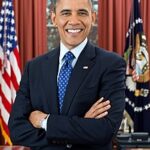President Obama’s expansion of NSA mass surveillance programs marked a defining moment in post-9/11 America. Despite campaign promises of transparency, his administration continued controversial intelligence gathering practices. The programs collected vast amounts of citizen data without warrants.
The Decision Behind NSA Mass Surveillance
Obama inherited extensive surveillance infrastructure from President Bush. His administration argued national security required these expanded capabilities. The NSA collected phone metadata from millions of Americans daily. Officials claimed the programs prevented terrorist attacks. Critics argued this violated Fourth Amendment protections against unreasonable searches. ⚠️
Snowden’s Revelations
Edward Snowden’s 2013 leaks exposed the program’s true scope. Documents revealed PRISM collected data from major tech companies. The NSA accessed emails, photos, and private communications without individual warrants. These revelations shocked the public and privacy advocates. 📊
Constitutional Concerns
Legal experts questioned the programs’ constitutionality from the start. The Foreign Intelligence Surveillance Court operated in secret with minimal oversight. Civil liberties organizations filed numerous lawsuits challenging the surveillance authority. Obama defended the programs as necessary for preventing terrorism. 💰
Impact:
The expansion of NSA mass surveillance created lasting consequences for American civil liberties. Public trust in government transparency declined significantly after Snowden’s revelations. The programs affected millions of citizens without their knowledge or consent.
Domestic Political Fallout
Congressional leaders demanded immediate reforms to surveillance practices. Both Democratic and Republican lawmakers criticized the program’s overreach. The House and Senate held multiple hearings on intelligence gathering. Obama faced pressure from civil liberties advocates within his own party. 🔥
International Diplomatic Consequences
Foreign allies discovered the NSA monitored their communications too. Germany’s Angela Merkel and other leaders expressed outrage over surveillance. International trust in American technology companies plummeted worldwide. Tech giants faced boycotts in European and Asian markets. 🌍
Legal and Regulatory Changes
Courts eventually ruled portions of the surveillance programs unconstitutional. The USA Freedom Act of 2015 limited some NSA data collection. Technology companies strengthened encryption to protect user privacy. New oversight mechanisms emerged to monitor intelligence agencies. 📉
Long-term Democratic Impact
The controversy highlighted tensions between security and privacy rights. Future presidents inherited complex surveillance authorities and public skepticism. Digital rights became a major political issue for subsequent elections. The debate continues influencing modern privacy legislation and tech regulation.
